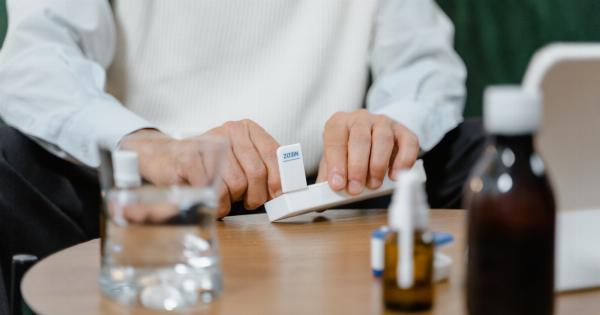Atopic dermatitis, also known as eczema, is a skin condition that affects millions of people around the world. It’s an inflammatory skin disorder that causes itching, dryness, and redness.
While there’s no known cure for eczema, there are several ways you can prevent it from flaring up. Here are some tips to help you prevent atopic dermatitis:.
1. Moisturize Daily
Using a moisturizing lotion or cream daily can help keep your skin hydrated and prevent dryness. Dry skin is one of the main triggers of eczema, so it’s important to keep your skin moisturized at all times.
Look for a moisturizer that’s free of fragrances and dyes to avoid irritating your skin. Apply the lotion or cream after showering or bathing to help lock in moisture.
2. Avoid Harsh Soaps
Harsh soaps and detergents can strip your skin of its natural oils, leading to dryness and irritation. Switch to a gentle, fragrance-free soap or cleanser to avoid exacerbating your eczema.
Look for products that are labeled “sensitive skin” or “for eczema-prone skin.”.
3. Wear Loose-Fitting Clothing
Wearing tight-fitting clothing can rub against your skin and aggravate eczema symptoms. Opt for loose-fitting clothes made from breathable materials like cotton or silk.
Avoid synthetic fabrics like polyester or nylon, which can trap heat and moisture against your skin.
4. Keep Your Nails Short
Scratching can worsen eczema symptoms and lead to infection. Keep your nails short to avoid damaging your skin and causing itchiness. If you can’t resist scratching, try scratching lightly with the pads of your fingers instead of your nails.
5. Avoid Triggers
Eczema can be triggered by a variety of factors, including stress, temperature changes, and certain foods. Pay attention to what triggers your eczema and try to avoid those triggers as much as possible.
Keep a journal to track your symptoms and identify patterns.
6. Use a Humidifier
Dry air can cause eczema to flare up, especially during the winter months when the air is drier. Use a humidifier to add moisture to the air and prevent your skin from becoming too dry.
Avoid setting the humidifier to a high level, as too much moisture can create an ideal environment for bacteria and mold growth.
7. Manage Stress
Stress can trigger eczema or make existing symptoms worse. Find ways to manage your stress, such as practicing yoga or meditation, getting regular exercise, or seeing a therapist. Make time for self-care activities that help you relax and unwind.
8. Be Careful with Skincare Products
Certain skincare products can irritate eczema-prone skin, so it’s important to choose your products carefully.
Look for products that are labeled “hypoallergenic” or “for sensitive skin.” Avoid products that contain fragrances, dyes, or alcohol, which can dry out your skin and cause itching.
9. Stay Hydrated
Drinking plenty of water can help keep your skin hydrated and prevent dryness. Aim to drink at least eight glasses of water a day, or more if you’re active or live in a dry climate.
10. See a Dermatologist
If your eczema symptoms are severe or causing you discomfort, see a dermatologist for evaluation and treatment. They can prescribe medications or recommend other treatments to help manage your symptoms and prevent future flare-ups.






























